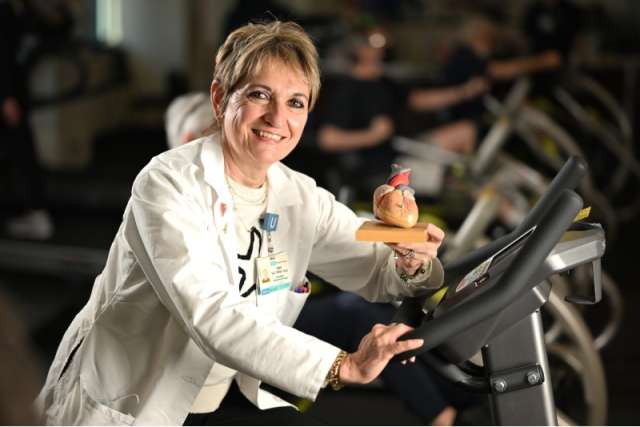The heart, often symbolized as the seat of emotion, is profoundly connected to our mental state, and the intricate relationship between emotional well-being and cardiovascular health has garnered the attention of medical professionals and patients alike.
According to Anne Saltzman, PsyD, a cardiac psychologist at the UCLA Women’s Cardiovascular Health Center, stress is one of the top risk factors for heart disease — the leading cause of death in the country. This connection underscores the need for a holistic approach to health, one that recognizes the influence of our emotional landscape on our physical well-being.
Dr. Saltzman, who plays a pivotal role in cardiac rehabilitation, emphasized the importance of addressing both the physical and psychological aftermath of a cardiac event. Patients who experience heart attacks or undergo cardiac interventions often find refuge in the Cardiopulmonary Rehabilitation Center at UCLA, which offers more than just physical exercise.
The goal is to help patients regain a sense of trust in their heart, an endeavor that goes beyond the physical to include their mental and emotional states. "That trust is not complete unless we address two things: the stress in their lives and the trauma of having a life-threatening event," she explained.
Stress, while a normal part of everyday life, becomes toxic when it persists unchecked. "The incidence of heart disease for young women in the U.S. is going up, and these include fatal events, too. We believe it could be related to a high level of stress," Dr. Saltzman noted.
Dr. Saltzman works with both men and women, but it is women, in particular, who may feel immense pressure to excel in their roles as mothers, daughters, wives and employees, leading to compromised sleep quality and increased cardiac risk, she said.
Studies have shown that such as depression and posttraumatic stress disorder than men. This, in turn, puts women at higher risk of cardiometabolic conditions such as coronary heart disease.
Patients with heart disease are a diverse population, ranging from those with hypertension to survivors of a heart attack or cardiac arrest. Regardless of where they fall on the spectrum, the emotional toll of heart disease is universal, and challenging to manage.
"Even when patients recover well, it's emotionally very difficult to handle the fact that your heart is actually suffering," Dr. Saltzman said.
Dr. Saltzman pointed out a common narrative among patients who struggle to comprehend how stress has affected their cardiac health. Time and again, upon delving into their histories, a pattern emerges linking emotional or stressful life events — such as divorce or the loss of a loved one — to their heart condition. This revelation often comes as a surprise to the patient, highlighting the necessity of psychological intervention in cardiac care.
The science behind stress and heart disease is critical to our understanding of this connection, said Dr. Saltzman. "When you have this feeling of, ‘I'm alone in the world,’ the message from the brain is that you are in danger. Stress goes up, and the cardiovascular system tenses. When it’s chronic, inflammation increases in the body and the autonomic nervous system increases the heart rate, causing blood pressure to go up. At that point, it becomes a risk factor,” she said.
How can we mitigate the effects of stress and emotional turmoil on our hearts? The answer lies in a multidisciplinary approach that includes lifestyle changes, stress-management techniques and, when necessary, psychological support. Regular physical activity, a balanced diet, sufficient sleep and relaxation techniques such as meditation or deep-breathing exercises are foundational. Moreover, cultivating strong social support networks and seeking professional help can be vital in navigating the emotional challenges that accompany heart disease.
The heart and mind are more connected than we might have imagined. By integrating heart and mind care, we can work toward a future where holistic health is not just an aspiration, but is a reality for all. Taking care of our emotional health is not just good for the soul; it is essential for the heart.



